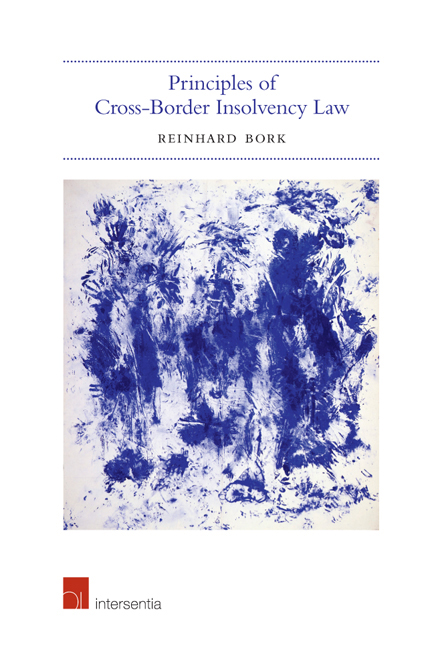Book contents
- Frontmatter
- Dedication
- Foreword
- Preface
- Contents
- Table of Abbreviations
- Table of Cases
- Chapter 1 Setting the Scene
- Chapter 2 Jurisdictional Principles
- Chapter 3 Procedural Principles
- Chapter 4 Substantive Principles
- Chapter 5 Interim Results
- Chapter 6 Conflict of Principles
- Chapter 7 Principles and Harmonisation
- Chapter 8 Concluding Remarks
- Literature
- Index
- About the Author
Chapter 2 - Jurisdictional Principles
Published online by Cambridge University Press: 22 September 2018
- Frontmatter
- Dedication
- Foreword
- Preface
- Contents
- Table of Abbreviations
- Table of Cases
- Chapter 1 Setting the Scene
- Chapter 2 Jurisdictional Principles
- Chapter 3 Procedural Principles
- Chapter 4 Substantive Principles
- Chapter 5 Interim Results
- Chapter 6 Conflict of Principles
- Chapter 7 Principles and Harmonisation
- Chapter 8 Concluding Remarks
- Literature
- Index
- About the Author
Summary
Cross-border insolvencies necessarily concern the territories of at least two sovereign, equal-ranking states. The administration of insolvency proceedings must therefore take into account that neither state can impose the effects of its own law upon the other. Of course, state A can – on the grounds of its own crossborder insolvency law – deliberately acknowledge the decisions of state B and use them in its own territory. It is also possible for state A to request that state B does so in return, i.e. that it acknowledges and enforces the insolvency decisions of state A. However, a legal obligation for state B to do so can only be grounded in its own national or in binding transnational cross-border insolvency law. Where we find such laws, they are based on fundamental principles, which we will label ‘jurisdictional principles’. Their primary focus is on the relationship between the autonomous states involved in the proceedings; this will be explored in further detail in this chapter.
UNITY
The first – albeit often neglected – principle to be emphasised is the principle of unity. In the context of cross-border insolvencies, its meaning is that there shall be no more than one single insolvency procedure governing the debtor's insolvency. Unity therefore contrasts with plurality; plurality would refer to cross-border insolvencies for which there are multiple proceedings, due to assets of the debtor being located in multiple states. If state A (regarding its own national cross-border insolvency law) decides in favour of the principle of plurality, no effects seem to be extended to other states, as the national law then restricts these effects to its own territory. However, this can hardly be true. Where, for example, state A opens insolvency proceedings on the basis of the plurality principle and the debtor has no assets in state B, but does have creditors or contract partners in state B, a cross-border issue emerges, whether state A accepts this or not. No insolvency proceedings can be opened in state B as there are no assets located therein.
- Type
- Chapter
- Information
- Principles of Cross-Border Insolvency Law , pp. 21 - 76Publisher: IntersentiaPrint publication year: 2017



